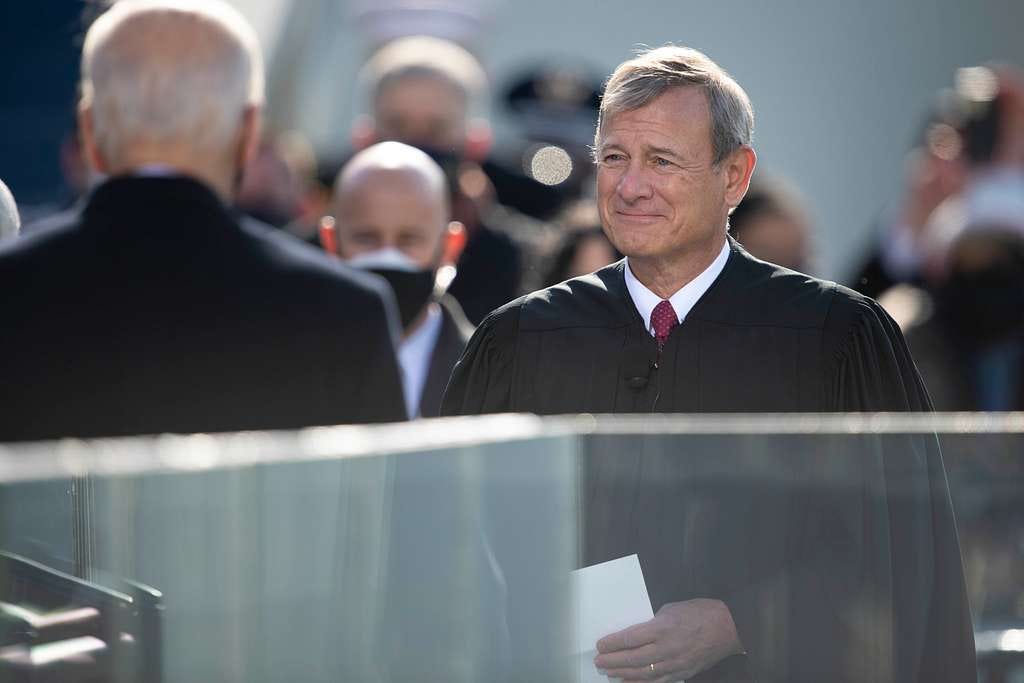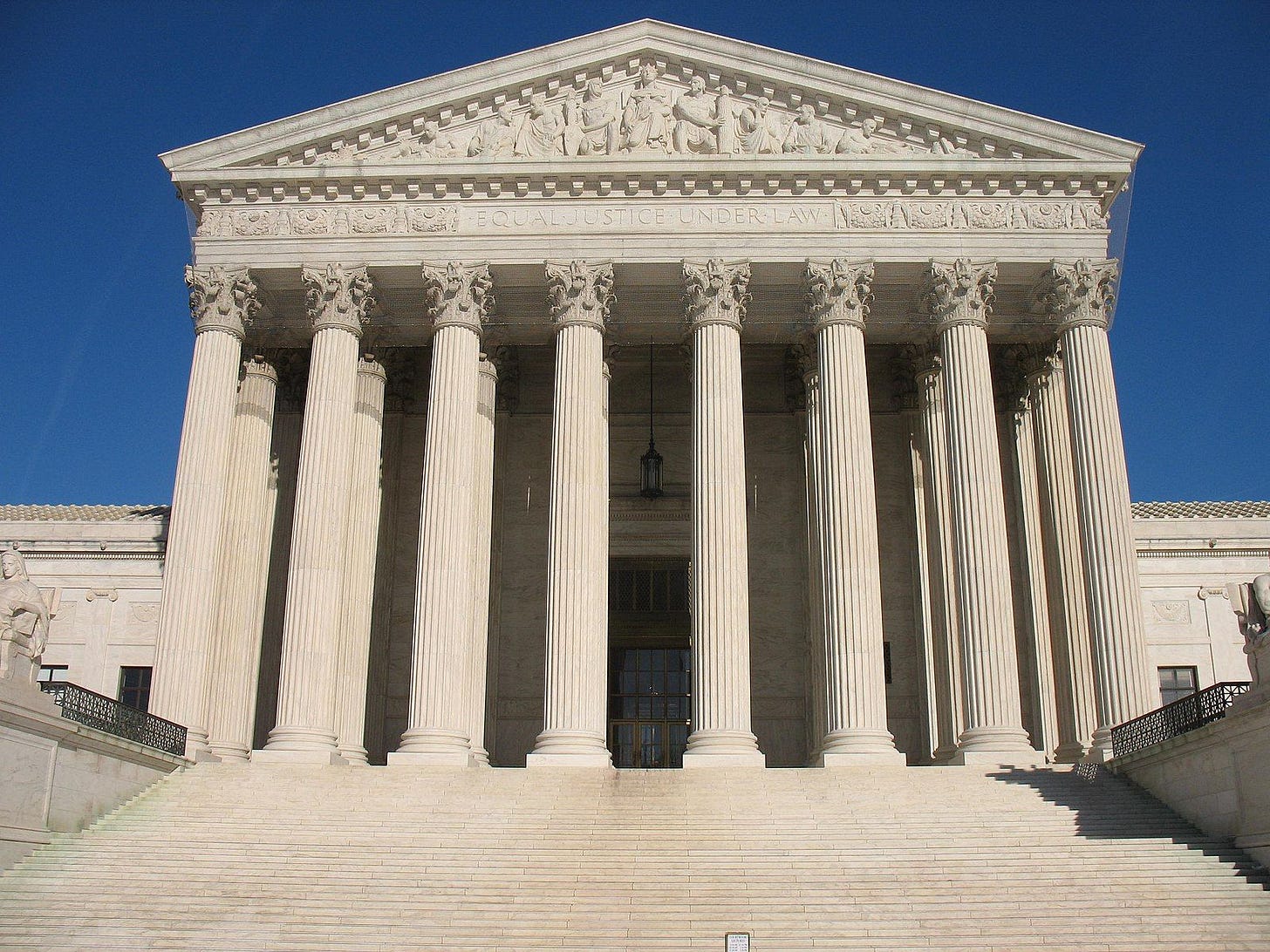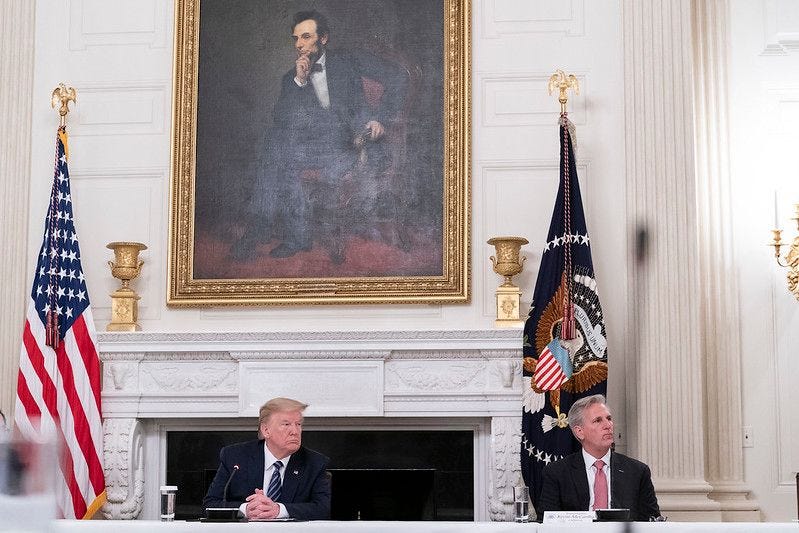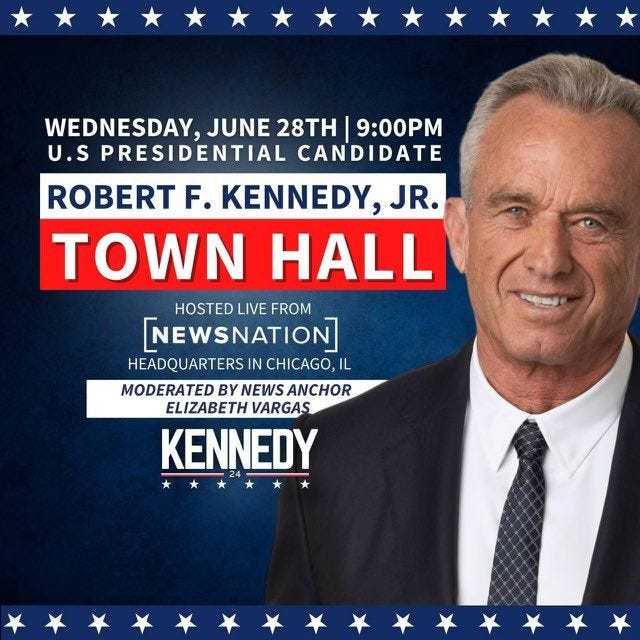Supreme Court rejects fringe election theory
Why the Supreme Court’s ruling in Moore v. Harper has major implications for the 2024 elections and beyond.
Good morning! It’s Wednesday, June 28, 2023. The 2024 elections are 496 days away. If this newsletter was forwarded to you, subscribe here. If you want to contribute to support my work, donate here.
The Supreme Court knocked down a radical theory on Tuesday that would have upended American politics by giving state legislatures nearly free rein to set election rules without any oversight from state courts.
Chief Justice John Roberts wrote the opinion for a 6-3 majority, joined by fellow conservatives Brett Kavanaugh and Amy Coney Barrett, as well as the three liberal justices, Sonia Sotomayor, Elena Kagan, and Ketanji Brown Jackson.
Justices Clarence Thomas, Samuel Alito, and Neil Gorsuch dissented from the decision.
The theory, known as the “independent state legislature theory” (ISL), first emerged in the conservative legal world during the 2000 presidential recount. Its proponents argue that state legislatures have nearly complete authority to regulate federal elections; according to this view, Congress and the federal courts can play a role in election law, but state courts cannot.
Defenders of the theory point to Article I, Section 4, Clause 1 of the Constitution, which is known as the Elections Clause. It reads:
“The Times, Places and Manner of holding Elections for Senators and Representatives, shall be prescribed in each State by the Legislature thereof; but the Congress may at any time by Law make or alter such Regulations, except as to the Places of chusing Senators.”
The case decided yesterday, Moore v. Harper, stemmed from a legal fight between Republican legislators in North Carolina and the state’s Supreme Court.
The state court had found a congressional district map drawn by the state legislators to be an unconstitutional gerrymander; the lawmakers sued, arguing that the Elections Clause did not leave any room for state courts to intervene in federal elections.
Chief Justice Roberts dispensed with that theory in his majority opinion, which cited previous Supreme Court precedents and founding-era writings to establish that the Framers intended for state courts to play the same role in election law as they do in other disputes.
“The Elections Clause does not insulate state legislatures from the ordinary exercise of state judicial review,” Roberts wrote.
“When a state legislature carries out its constitutional power to prescribe rules regulating federal elections, the ‘commission under which’ it exercises authority is twofold,” he continued. “The legislature acts both as a lawmaking body created and bound by its state constitution, and as the entity assigned particular authority by the Federal Constitution.”
Therefore, either state or federal courts can intervene if they find that a state election law violates either the state or federal Constitutions.
The dissenting justices also did not fully embrace ISL, instead arguing that the court should have dismissed the case because a new configuration of the North Carolina Supreme Court — now controlled by Republican appointees — has reversed its prior decision and is now allowing the GOP-drawn map to go into effect.
“This is a straightforward case of mootness,” Thomas wrote in the main dissent.
A decision upholding ISL would have had far-reaching implications. Congressional district maps are routinely challenged in (and often rejected by) state courts. Since the Supreme Court previously ruled in 2019 that federal courts cannot adjudicate disputes over partisan gerrymandering, a ruling blocking state courts from the process would have given state legislators almost complete control over redistricting.
ISL was also cited in 2020 by Trump allies trying to overturn the election, who sought to toss out the outcomes in jurisdictions where state courts had implemented changes in election rules.
J. Michael Luttig, the retired conservative jurist and Trump critic, had called Moore v. Harper the “most important case on American democracy — and for American democracy — in the nation’s history,” because of the risk that future candidates could use ISL to overturn elections if the Supreme Court embraced the theory. After Tuesday’s decision, that risk is now significantly minimized.
In his opinion, Roberts did warn that there are limits to the role state courts can play in disputes over federal elections. “As in other areas where the exercise of federal authority or the vindication of federal rights implicates questions of state law, we have an obligation to ensure that state court interpretations of that law do not evade federal law,” he wrote.
However, Roberts explicitly declined to set a standard to outline when a state court has gone too far, creating the possibility that similar cases will arrive before the Supreme Court in the future, until the justices offer more specific limits.
The Supreme Court has seven more cases to decide before it is expected to recess at the end of the week. As I noted yesterday, the court has delivered several liberal victories so far this term — especially on election law, a trend continued in Moore v. Harper — but the forthcoming rulings on affirmative action, student loan debt, and LGBT rights are expected to favor conservatives.
The justices will next unveil opinions on Thursday.
TWO MORE DOWN
The Supreme Court also issued two other rulings on Tuesday:
In Counterman v. Colorado, the justices sided with a Colorado man convicted for stalking after sending hundreds of threatening messages to a woman over Facebook. As Justice Elena Kagan wrote for the 7-2 majority opinion, the court decided that prosecutors had to show “the defendant had some subjective understanding of the threatening nature of his statements.” Justices Clarence Thomas and Amy Coney Barrett were the two dissenters. Read the opinion
In Mallory v. Norfolk Southern, the justices upheld a Pennsylvania law that allows companies — such as the railroad giant at the center of the case — to be sued in the state if they do business there, even if they are not headquartered there and the conduct in question did not take place there. An unusual coalition of justices (Neil Gorsuch, Clarence Thomas, Samuel Alito, Sonia Sotomayor, and Ketanji Brown Jackson) came together in the 5-4 ruling, which was immediately decried by the business community. Read the opinion
MORE HEADLINES
Whose Kevin: House Speaker Kevin McCarthy “outraged” the Trump campaign on Tuesday by suggesting in a CNBC interview that the ex-president may not be the strongest GOP candidate to face Biden. McCarthy quickly walked back the comments in an interview with Breitbart, but Trumpworld is reportedly still furious about the slight.
Speaking of Trump: The ex-president is “leaning heavily toward” skipping the first GOP primary debate (per NBC News) and likely to soon return to Twitter (per Axios). Also, the New York AG’s fraud case against his daughter Ivanka was dismissed by a federal judge.
Circling back, part I: Last week, I wrote about President Biden’s embrace of India and covered his joint press conference with Indian PM Narendra Modi. The sole U.S. reporter to ask a question at that press conference — the Wall Street Journal’s Sabrina Saddiqui, who asked about Modi’s treatment of Muslims — is now facing online attacks from Modi’s allies, including a spokesman for his party. The White House condemned the harassment in a statement.
Circling back, part II: Earlier this month, I wrote about why long-shot candidates run for president. A campaign for the White House, even one with tiny odds of success, is “pure upside,” I wrote. Politico is up with a similar piece, writing that “the shoot-for-the-moon-and-you’ll-land-among-the-stars strategy is all upside.”
Speaking of long-shots: Miami mayor Francis Suarez, a GOP presidential candidate, stepped in it on Tuesday when interviewer Hugh Hewitt asked him about the Uyghurs, an oppressed religious minority group in China. “What’s a Uyghur?” Suarez responded. “What’d you call it, a weeble?” he added later in the interview. The mayor tweeted afterwards that he “didn’t recognize the pronunciation.” Listen to the audio here
Race for the Senate: Tim Sheehy, a Republican businessman and former Navy SEAL, launched a campaign Tuesday to challenge Montana Sen. Jon Tester, one of the Senate’s most vulnerable Democrats. The Senate GOP campaign chief quickly endorsed Sheehy, angering another potential candidate. After a rocky slate of candidates led to high-profile losses in 2022, Senate Republican leaders have been much more active in picking favorites in primaries this time around.
POLITICS PLANNER
All times Eastern
President Biden will travel to Chicago to deliver an address at 1 p.m. on his economic agenda — which the White House is terming “Bidenomics” and describing as a “vision for growing the economy from the middle out and the bottom up, not the top-down.”
Before returning to Washington, Biden will also attend a campaign fundraiser, his third in two days.
Vice President Harris has nothing on her public schedule.
The House and Senate are both on recess all week.
The Supreme Court won’t issue more opinions until tomorrow.
On the campaign trail, NewsNation will host a primetime town hall with Democratic primary challenger Robert F. Kennedy Jr., which will air at 9 p.m.
Former UN ambassador Nikki Haley will campaign in New Hampshire with Gov. Chris Sununu (R-NH), a moderate Republican who opted against running for the White House.
In Atlanta, Justice Department prosecutors will interview Georgia Secretary of State Brad Raffensperger as part of their investigation into Trump’s efforts to overturn the 2020 election, per the Washington Post.
Thanks for reading.
I get up each morning to write Wake Up To Politics because I’m committed to offering an independent and reliable news source that helps you navigate our political system and understand what’s going on in government.
The newsletter is completely free and ad-free — but if you appreciate the work that goes into it, here’s how you can help:
Donate to support my work or set up a recurring donation (akin to a regular subscription to another news outlet).
Buy some WUTP merchandise to show off your support (and score a cool mug or hoodie in the process!)
Tell your family, friends, and colleagues to sign up at wakeuptopolitics.com. Every forward helps!
If you have any questions or feedback, feel free to email me: my inbox is always open.
Thanks so much for waking up to politics! Have a great day.
— Gabe






